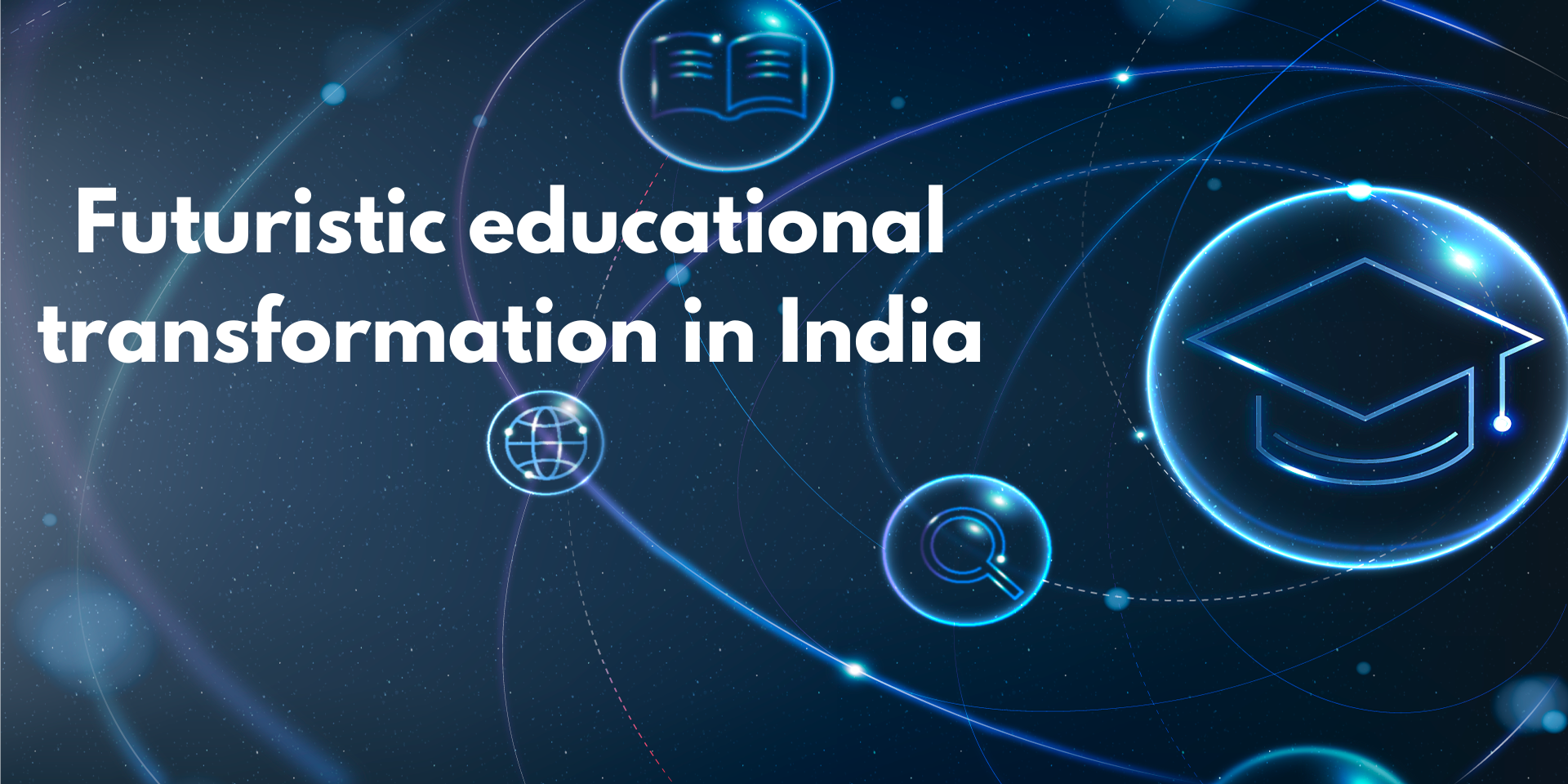The world around us is changing, or to be more precise, transforming rapidly. We are moving into the world of augmented reality, virtual reality, artificial intelligence, and autonomous vehicles. Keeping in mind the technological advancements, we need to think about various class technologies for learning and teaching. Just like advancements in other fields, educational transformation is the need of the hour. The use of technology in education is creating a fun and interactive learning environment in the classroom for kids and teachers too. Educational institutions in India need to work on digital transformation in education. Schools should provide a space for students to learn about advanced technologies and adapt themselves to the new world.
Teachers and schools have the potential to transform a student’s life
- Educational transformation is not just about knowing all the concepts and getting high grades in the examinations.
- Teachers are equipped with various class technologies, sophisticated tools, and digital skills. They have the capability and potential to encourage students to learn and take up education as a means of improving their lives, and the lives of others around them as well.
- The education system and schools play a key role in transforming every individual into a socially responsible individual.
- Social responsibility in children is a key aspect of teaching that cannot be overlooked by any school.
- Teaching socially responsible behavior to children in school means creating individuals who can lead, think, adapt, and be tolerant towards differences that exist in the society.
- Educational transformation is also about making children future-ready.
- In today’s world, children are surrounded by sophisticated gadgets and machines, mostly functioning on advanced technologies.
- It is imperative for the future generation to know about these technologies behind the things that they see and use in day-to-day life.
- Educational institutions play a key role in training young minds with additional knowledge beyond the books, along with advanced skills and technologies, so that they can become ready for the future and also an active part of the student community worldwide.
Academics – The Ever-Changing Industry
- Academics is an industry that is changing continuously, with research and development being the main focus.
- When it comes to digital transformation in education, there are several guidelines, processes, standards, and goals involved.
- Academic transformation involves the use of technology in education to establish new academic standards, formulate and implement new strategies through the means of research and development.
Educational transformation in India
- Education in India is slowly and steadily transforming, with several changes being implemented.
- The smart classroom has changed the way students interact with educational content.
- Online learning, experiential learning, and blended learning have been effective tools in implementing personalized education and delivering quality lessons to learners.
- Project-based learning, activity-based learning, and experiential learning are vital and form an important part of the New Education Policy 2020.
- The focus of NEP 2020 has also been to make online education a key part of all education efforts in India.
- The education system that we see in India today is a completely revitalized one with more focus on ‘higher skills’ by the Central Government as seen in NEP 2020.
- Rather than rote learning, education emphasizes developing skills such as problem-solving, creativity, visualization, inquiry, collaboration, and teamwork.
The chalk boards have been replaced by the smart classroom
- There has been a paradigm shift in the way teachers teach the students of today’s generation.
- The traditional method of writing notes and explanations on the chalkboard and asking the students to copy them in their notebooks has paved the way for the smart classroom.
- The smart classroom is a great example of educational transformation where a tech-driven smartboard has all the lessons, formulae, diagrams, and concepts holistically described in detail, available for download anytime.
- The smart classroom has been responsible for attracting a lot of children and a decrease in the dropout rates as well in schools.
How is digital transformation in education helping everyone?
- Educational transformation helps improve the learning experience for students, teachers, and parents too.
- The use of technology in education focuses on improving the engagement of students and accessibility through the use of interactive and innovative learning.
- With the implementation of various class technologies, students get actively involved in the process and interact with the key elements of learning.
- With educational transformation, education has become more comprehensive and inclusive.
- The use of class technologies such as text-to-speech, alternative keyboards, electronic math worksheets, audiobooks, optical character recognition, and many others help students with learning difficulties and makes things easier for them.
Hands-on technical learning is equally important as academic learning
- Students need to be academically proficient. However, they also need to know the technical skills and proficiency.
- In addition to understanding the various novel concepts, students should know how to implement them.
- Educational transformation must strike the right balance between traditional skills like craftsmanship and new-age skills like coding, programming, data science, etc.
Moving beyond the classroom
- Digital transformation in education must ensure that students are able to learn at their own pace and develop critical thinking skills and problem-solving approaches to everything.
- Education is not just about a student’s ability to learn. It is a combination of skills, behavior, and attitudes that blend together to make an individual who has learned well.
- Beyond the traditional classroom, the use of technology in education must be able to generate curiosity, foster innovation, and imagination with hands-on practical learning.
- Learning beyond the classroom at every stage of a student’s education can help them develop important future skills that will benefit not only them, but also the industry and the country as a whole.
- The demand for higher quality education in various sectors is paving the way for a change in education in India.
The examples of educational transformation are countless. The progress that has been made in this field is rapid. The transition to the smart classroom and the incorporation of STEM-based learning along with online learning have transformed the education sector. The future of education is creating a safe, secure, and personalized learning environment far beyond the traditional classroom and the computer lab. It is time to bid adieu to the monotonous rote learning method and make students industry-ready by aligning them to what is actually required by organizations in various fields.


